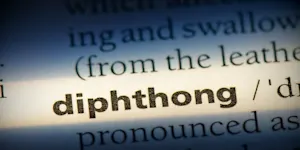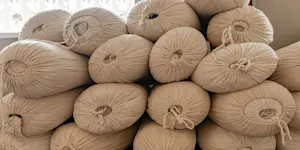What Makes This Word Tick
"Scathing" has a bite to it, doesn’t it? It carries with it a sharpness and an ability to cut through niceties. When you use "scathing," you're not just critiquing; you're delivering a critique that leaves a mark, often laced with a touch of severity or sarcasm.
If Scathing Were a Person…
Imagine the social critic who never pulls punches, calling things as they are with a refreshingly brutal honesty. Perhaps they’d sip their coffee black and have a penchant for saying what everyone else is too polite to put into words.
How This Word Has Changed Over Time
The lineage of "scathing" traces back to Old Norse roots, originally meaning "to injure" or "to harm." Over time, its physical connotations mellowed into the verbal realm, targeting egos rather than flesh.
Old Sayings and Proverbs That Use Scathing
While not in classic proverbs, the spirit of "scathing" is alive in those zesty maxims reminding us that "truth hurts" and "the pen is mightier than the sword"—apt reflections of scathing commentary’s impact.
Surprising Facts About Scathing
Despite its harsh connotations, "scathing" finds its home in highbrow circles just as comfortably as in tabloid headlines. It's often the word of choice among critics crafting artfully harsh reviews.
Out and About With This Word
"Scathing" loves high-stakes environments where words carry weight—think courtroom exchanges, political debates, or glittery awards shows where barbed wit is celebrated.
Pop Culture Moments Where Scathing Was Used
From the infamous roasting at comedy clubs to celebrity feuds splashed across gossip columns, "scathing" describes those memorable moments when someone's remarks make headlines.
The Word in Literature
You'll often stumble upon "scathing" in literary reviews or critiques that don’t hold back. It fits comfortably in genres where incisive wit and biting commentary reign supreme, such as satire or political essays.
Moments in History with Scathing
Picture Winston Churchill's scathing retorts in Parliament or Dorothy Parker’s legendary one-liners. Historical figures known for their sharp tongues have often unwittingly provided templates for this word.
This Word Around the World
Different cultures give "scathing" unique twists. The French might favor "acerbe" to convey similar acerbity, while Italians could choose "caustico" to describe that same pointed critique.
Where Does It Come From?
It hails from the Old Norse skaða, meaning to harm or injure. English sailors likely borrowed it from their Nordic neighbors, preferring words that captured the blunt-force impact of their seafaring lives.
How People Misuse This Word
People often misuse "scathing" to describe any criticism, but not all critiques have the distinctive harshness "scathing" implies—a fundamental difference that packs a punch.
Words It’s Often Confused With
Caustic: Both imply sharply critical, but "caustic" often hints at a more corrosive touch.
Harsh: A broader term, "harsh" lacks the finesse and sting of "scathing."
Critical: While overlapping, "critical" doesn't embody the uniquely biting quality of "scathing."
Additional Synonyms and Antonyms
Synonyms basking in its shadow include "vitriolic" and "trenchant," while for antonyms, consider "kind" or "praising," which flip the script on scathing’s sharp edge.
Want to Try It Out in a Sentence?
The columnist’s scathing review reduced the director’s ambitious film to a pretentious art piece.
















